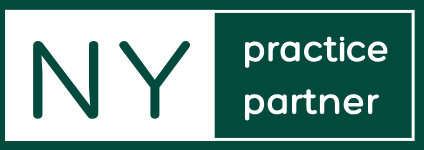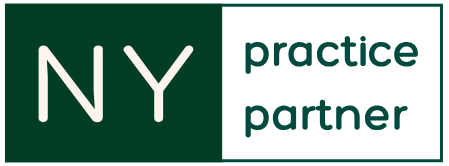A credentialing specialist is an essential professional in various sectors, particularly in the healthcare industry. Their primary responsibility is to verify the qualifications and backgrounds of professionals to ensure they meet the required standards for delivering quality services. This article will explore what credentialing specialists do, how to become one, their salary expectations, and the significant impact they have in healthcare.
What Does a Credentialing Specialist Do?
The main duty of a credentialing specialist is to confirm that healthcare providers, such as doctors, nurses, and allied health professionals, hold the necessary licenses and certifications to practice. Here are some critical tasks they perform:
Verifying Credentials
Credentialing specialists meticulously check educational degrees, professional licenses, and certifications. This verification process is vital to ensure that healthcare providers have the required qualifications and training.
Conducting Background Checks
They perform thorough background checks that include reviewing criminal histories and verifying past employment. This step helps identify any potential issues that could affect a provider’s ability to deliver safe patient care.
Maintaining Accurate Records
Keeping precise and up-to-date records is a crucial part of a credentialing specialist’s role. They manage documentation for all verification processes and ensure compliance with healthcare regulations.
Collaborating with Healthcare Facilities
Credentialing specialists work closely with hospitals, clinics, and other healthcare organizations. They ensure that all credentialing processes comply with industry standards and regulations.
Monitoring License Expiration
They track when licenses and certifications are due for renewal, proactively notifying healthcare providers to maintain compliance and avoid lapses in practice.
Through these tasks, credentialing specialists help uphold high standards of care within healthcare settings, ultimately contributing to patient safety and satisfaction.
The Importance of Credentialing Specialists in Healthcare
Credentialing specialists play a crucial role in safeguarding the integrity of the healthcare system. Their work ensures that healthcare providers are qualified, which is essential for delivering safe and effective care. A strong credentialing process helps build trust between patients and healthcare providers, leading to better patient outcomes and experiences.

How to Become a Credentialing Specialist
Embarking on a career as a credentialing specialist requires a blend of education, relevant skills, and experience. Here’s a step-by-step guide to help you get started:
Educational Background
Most credentialing specialists hold at least an associate’s degree. Many have bachelor’s degrees in healthcare administration, human resources, or related fields. Relevant coursework provides foundational knowledge about healthcare systems, compliance, and regulatory standards.
Gain Relevant Experience
Experience in healthcare settings can be invaluable. Entry-level positions in administrative roles or healthcare support can give you insights into the industry and the credentialing process.
Certification
While certification is not always mandatory, it can enhance job prospects. Organizations such as the National Association of Medical Staff Services (NAMSS) offer certification programs that are well-respected in the industry.
Develop Essential Skills
Key skills for credentialing specialists include:
- Attention to Detail: Critical for verifying documentation and ensuring accuracy.
- Strong Communication Skills: Necessary for interacting effectively with healthcare professionals and regulatory bodies.
- Technical Proficiency: Familiarity with software and systems used in documentation and record-keeping is important.
By following these steps, you can prepare yourself for a rewarding career as a credentialing specialist.
Credentialing Specialist Salary
The credentialing specialist salary can vary significantly based on factors such as experience, geographic location, and the type of healthcare organization. On average, credentialing specialists earn between $45,000 and $70,000 annually in the United States. Here are some insights into salary ranges:
- Entry-Level Positions: New credentialing specialists typically start with salaries ranging from $40,000 to $50,000.
- Mid-Career Specialists: Those with several years of experience can expect to earn between $55,000 and $65,000.
- Experienced Professionals: Senior credentialing specialists or those in supervisory roles may earn over $70,000 per year.
Salaries can also vary based on state and the specific healthcare facility, with some regions offering higher compensation due to demand.
Credentialing Specialist Job Description
A typical credentialing specialist job description includes the following responsibilities:
- Conducting thorough verifications of qualifications for healthcare providers.
- Maintaining and updating credentialing files and databases.
- Ensuring compliance with all legal and regulatory requirements.
- Collaborating with medical staff and administration to facilitate the credentialing process.
- Preparing and presenting reports and documentation as necessary.
This role requires a keen eye for detail and the ability to manage sensitive information ethically and professionally.
Conclusion
In summary, a credentialing specialist plays a vital role in the healthcare industry by ensuring that healthcare providers are qualified and compliant with regulations. Understanding their responsibilities, how to become one, and the potential salary highlights the significant impact they have on patient safety and quality of care. If you are considering a career in this field, focus on gaining the right education and experience to set yourself up for success.
FAQs
1. How much does a credentialing specialist make?
The salary can range from $45,000 to $70,000 per year, depending on experience and location.
2. What does a credentialing specialist do?
They verify the qualifications and backgrounds of healthcare providers, ensuring compliance and quality in services.
3. How to become a credentialing specialist?
Obtain relevant education, gain experience in healthcare settings, and consider certification for better job prospects.
4. What tools do credentialing specialists use?
Credentialing specialists often utilize database management software and credentialing systems to efficiently manage records and verify information.
5. What are the differences between credentialing and privileging?
Credentialing involves verifying the qualifications of healthcare providers, while privileging grants them permission to perform specific medical procedures based on their credentials.








